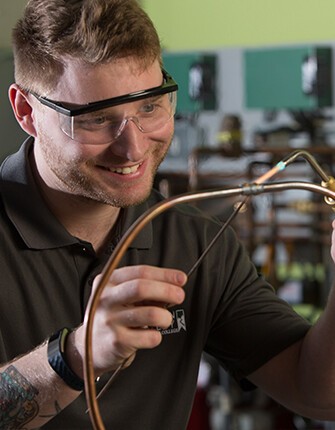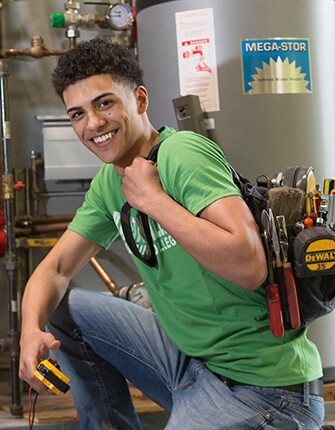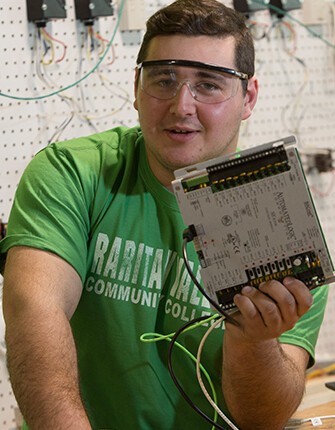Master the skills and design theory of today’s cutting-edge heating and refrigeration industry and launch your career as an HVAC/R Technician. Someone has to design climate controlled systems, and/or install, repair or maintain thousands of units soon. It might as well be you.
Pursue one of these two HVAC/R Career Tracks at RVCC:
- 1-year Certificate Track (31 credits) – Residential Systems ONLY. Prepare for an entry-level technician position. All classes college credit worthy.
- 2-year AAS Degree Track (62 credits) – Residential AND Commercial training. Prepare for any level HVAC/R position. If you choose to pursue further education in this field, all credits in this program are fully transferable towards a B.S. in Applied HVAC Engineering at the Pennsylvania College of Technology.
Once you are trained, we’ll help you find the job that works for you. The program is eligible for federal and state student financial aid.
To enroll in either program you must have a high school diploma or equivalency.





